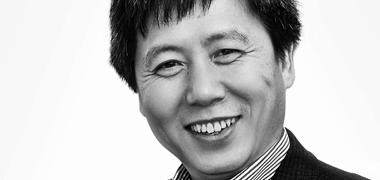We are celebrating the 10-year anniversary of Debats d’Educació by giving the educational community the opportunity to air its views

Yong Zhao is Presidential Chair and Associate Dean at the College of Education, University of Oregon and author of World Class Learners: Educating Creative and Entrepreneurial Students.
The three things I’ve learned
Global competence
In a crowded, globalized world, all citizens must develop the perspective, attitude, skills, and knowledge that enable them to live and work in different cultures successfully, to interact with people from different cultural backgrounds harmoniously and productively, and to carry out the moral responsibility to protect the only planet we have for future generations. With the “death of distance” brought about by technological advances and political changes, geographical boundaries and political institutions no longer separate societies. All societies and individuals have become interdependent and interconnected. It is thus utmost important for future citizens to think globally and have the cultural intelligence as well as linguistic competence to work across cultures.
Creativity
The Entrepreneurial Spirit
Traditional education has aimed to prepare good employees, to equip people with the knowledge and skills to meet the demands of existing jobs, and to help individuals to find jobs. But today rapid changes in society challenges the employee mentality. Instead of finding jobs or doing existing jobs, we will need individuals to create jobs, to come up with solutions, and to invent careers as existing jobs are volatile to massive changes. Entrepreneurs do not have to be those who start businesses. They can be social entrepreneurs who wok on addressing social problems such as social injustice, poverty, or protecting the environment. As long as the individual who actively work toward identifying and solving problems, without waiting for someone else to do so, that person has the entrepreneurial spirit.















 The texts published on this website are, unless otherwise indicated, covered by the Creative Commons Spain Attribution 3.0 licence. You may copy, distribute, transmit and adapt the work, provided you attribute it (authorship, journal name, publisher) in the manner specified by the author(s) or licensor(s). The full text of the licence can be consulted here:
The texts published on this website are, unless otherwise indicated, covered by the Creative Commons Spain Attribution 3.0 licence. You may copy, distribute, transmit and adapt the work, provided you attribute it (authorship, journal name, publisher) in the manner specified by the author(s) or licensor(s). The full text of the licence can be consulted here: